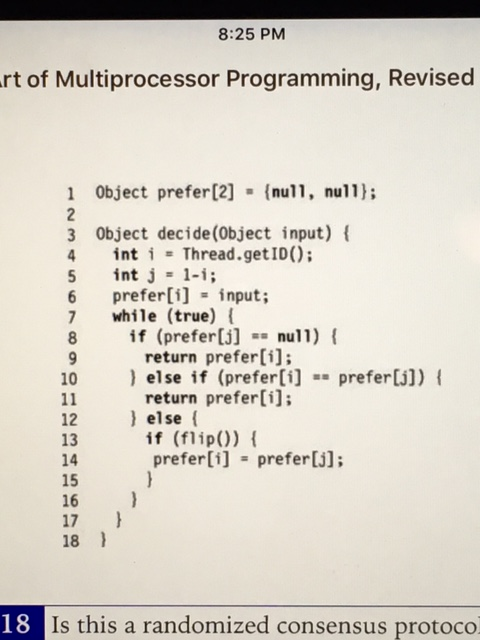Question
Multiprocessor Programming: We can treat the scheduler as an adversary who uses the knowledge of our protocols and input values to frustrate our attemps at
Multiprocessor Programming: We can treat the scheduler as an adversary who uses the knowledge of our protocols and input values to frustrate our attemps at reaching consensus. One way to outwit an adversary is through randomization. Assume there are two threads that want to reach consensus, each can flip an unbiased coin, and the adversary cannot control future coin flips. Assume the adversary schedule can observe the result of each coin flip and each value read or written. It can stop a thread before or after a coin flip or a read or write to a shared register. A randomized consensus protocol terminates with probability one against an adversary scheduler. Fig. 5.18 shows a plausible-looking randomized consensus protocol. Give an example showing that this protocol is incorrect. 
Step by Step Solution
There are 3 Steps involved in it
Step: 1

Get Instant Access to Expert-Tailored Solutions
See step-by-step solutions with expert insights and AI powered tools for academic success
Step: 2

Step: 3

Ace Your Homework with AI
Get the answers you need in no time with our AI-driven, step-by-step assistance
Get Started


